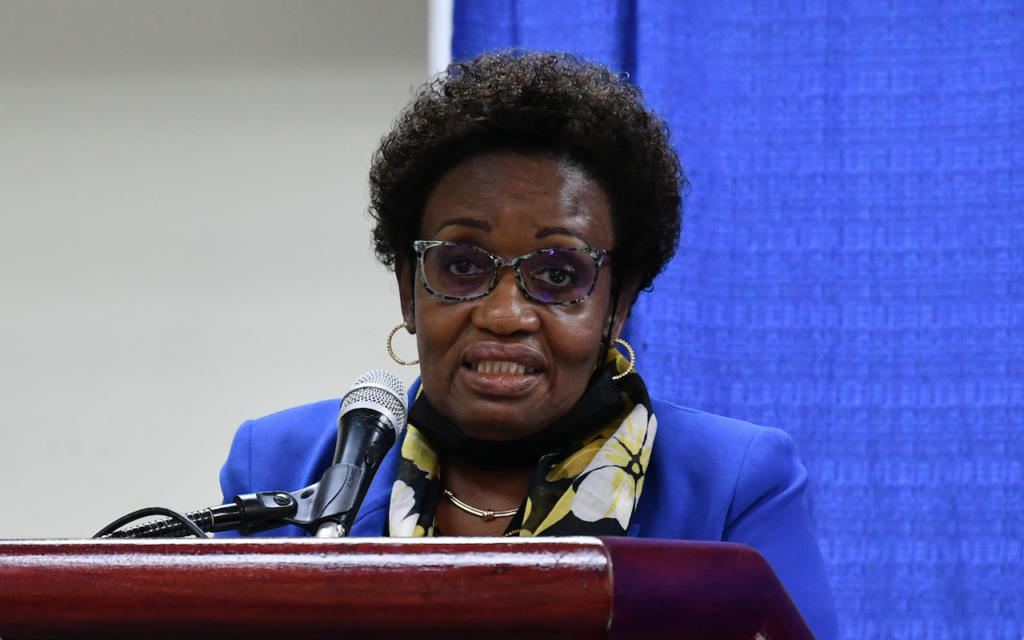Barbados is taking significant steps to enhance its health-care system by advancing the training of nurse practitioners and addressing long-standing nursing shortages.
One of the most notable developments is the progress in nurse practitioner training, a critical step for the advancement of nursing in Barbados. According to the President of the Barbados Nurses Association (BNA), Dr Fay Parris, the government has identified a foreign university that will facilitate the training of Barbadian nurses in advanced practice roles. This initiative aims to create a stronger health-care workforce by equipping local nurses with specialised skills.
“We have moved a lot further because the government of Barbados has identified an education university overseas where they will offer Barbadian nurses the opportunity to become nurse practitioners,” the BNA president said. This collaboration is expected to expand the local talent pool of nurse practitioners, who are essential in providing higher-level care in the country’s health-care facilities.
Already, some Barbadian nurses have qualified as nurse practitioners, and the initiative has sparked significant interest among others.
Parris noted, “We have some Barbadian nurses who are already nurse practitioners, and we have had a lot of interest in the programme because so far, the Ministry of Health and the Queen Elizabeth Hospital (QEH) have sought to find out from persons their expression of interest in the programme. So, we are moving forward with that programme.”
Currently, Barbados has several clinical nurse specialists, focusing on areas such as education and geriatrics. These advanced practice nurses are playing a crucial role in specialised care, and Parris stressed that more advanced practice nurses are on the horizon. “We are moving forward with having advanced practice nurses,” she said, underscoring the importance of this initiative for the future of nursing in Barbados.
Alongside the strides in advanced nurse training, Barbados is tackling a significant challenge: the shortage of nurses. Parris acknowledged that while the shortage has been a persistent issue, efforts are being made to ensure that health-care standards remain high, particularly in ensuring that every patient receives the care they need. One of the key barriers to addressing the shortage is the time it takes to train new nurses.
“With that in mind, we know it takes four years to produce a registered nurse. So therefore, we would have had to seek assistance from outside of the island to complement in numbers,” she explained. Barbados has had to rely on external support in the short term to meet the immediate demands in health care.
However, the long-term strategy remains focused on bolstering the local workforce. Efforts to train more nurses locally have begun to bear fruit. Parris highlighted a significant improvement in the pass rates of nursing students in the regional examination — a crucial step in increasing the number of qualified nurses entering the health-care system.
“You would have noted some years ago there was an issue with the pass mark at regional examinations. And that has improved quite significantly. Our numbers are up in the 80s and 90s percentage of pass now,” she revealed. “So that would mean that we have a greater number of nurses leaving the programme to be employed.” This improvement means that Barbados is set to produce a more consistent flow of new nurses into its health-care system in the coming years.
Despite this progress, there remain challenges, particularly for those students who do not pass the regional examination on the first attempt. Recognising this, the government and the BNA are exploring alternative pathways to ensure that even those who initially struggle can eventually join the nursing profession. “We are also looking at some nurses who were not able to pass the exam. We are providing other avenues for that to occur,” Parris noted.
To further secure the future of Barbados’ health-care workforce, the government is also taking steps to ensure that newly trained nurses remain in the country after completing their education. She confirmed that discussions have been ongoing between the BNA and the Ministry of Health and Wellness regarding the bonding of nursing students — a system designed to guarantee that nurses serve in Barbados for a period of time after receiving government-funded education. (RG)
The post How Barbados is enhancing its health-care system appeared first on Barbados Today.


